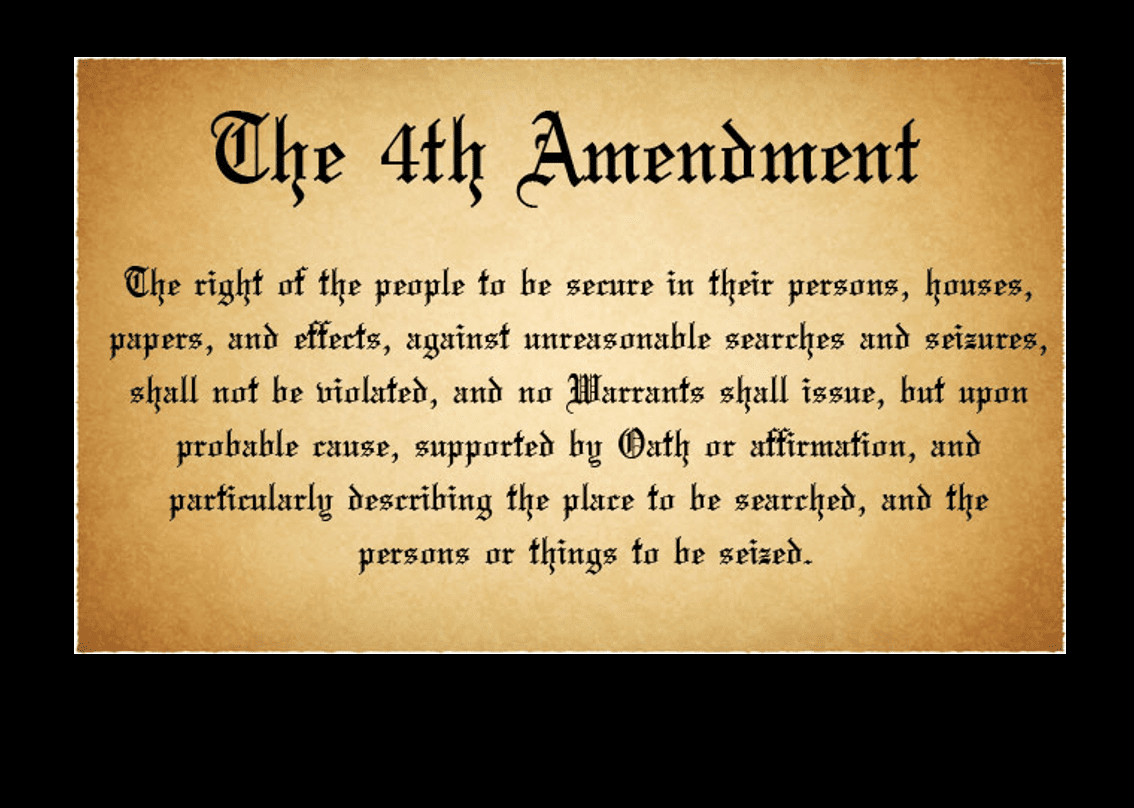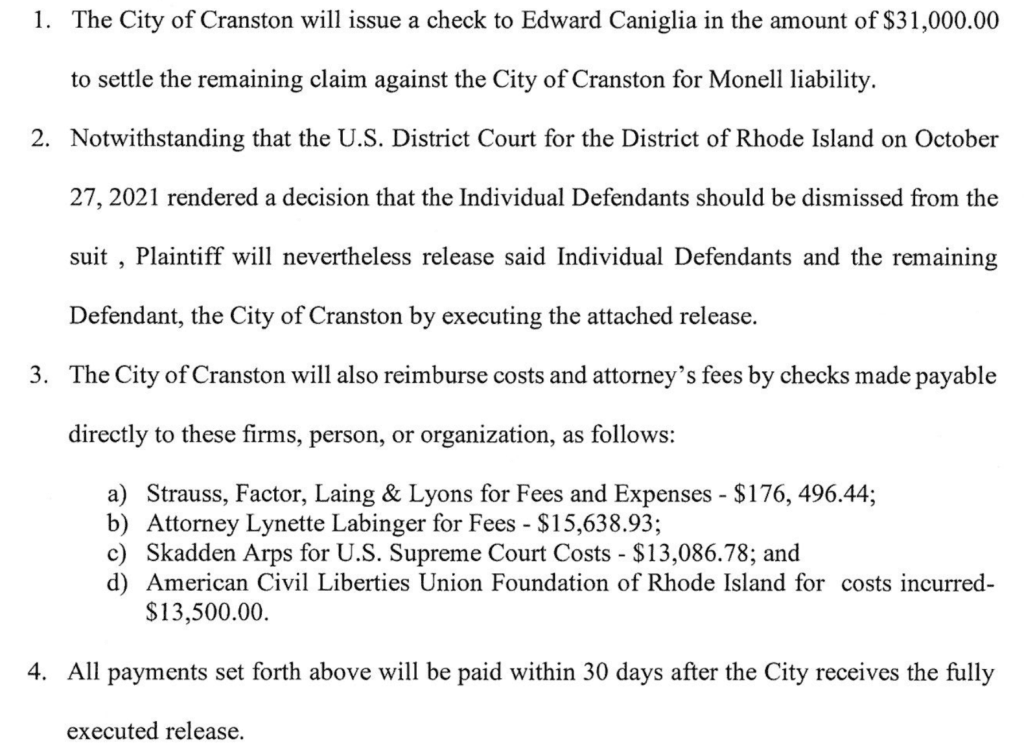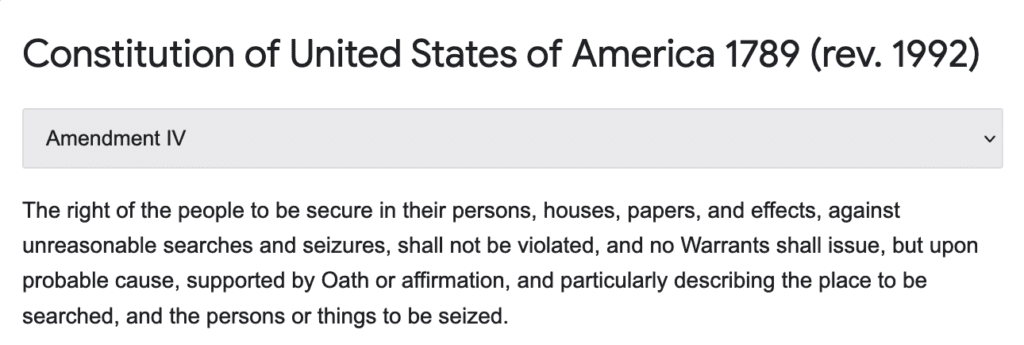Search Posts
Recent Posts
- Business Beat: Kira Greene, Compass, sells East Side Merriman House for $2,050,000 May 7, 2024
- Networking Pick of the Week: Business after Hours, Ocean Community Chamber May 7, 2024
- ART! 2024 Member Show at the First Unitarian Church May 7, 2024
- Business Beat: Nursing Home Navigator, new service at The Care Concierge of New England May 7, 2024
- Rhode Island Weather for May 7, 2024 – John Donnelly May 7, 2024
Categories
Subscribe!
Thanks for subscribing! Please check your email for further instructions.

Cranston case upholds 4th Amendment’s protection of privacy rights in the home
ACLU, CRANSTON SETTLE MAJOR “SEARCH AND SEIZURE” CASE THAT WENT TO THE U.S. SUPREME COURT
The question before the court: Whether the Fourth Amendment precludes government officials, who reasonably believe that a potentially mentally unstable person presents an impending threat of harming himself or others with a firearm, from a warrantless seizure of his person to facilitate a medical evaluation and of firearms from his residence to forestall potential harm to him or others.
The ACLU case description: “This is a successful federal lawsuit over a Cranston Police Department policy of refusing to return firearms seized without a warrant from residents who were neither charged with a crime nor found to pose a danger to themselves or others. The suit, on behalf of resident Edward Caniglia, argues the Cranston Police Department violated his right to due process and his right to keep and bear arms by retaining his firearms without just cause after seizing them without a warrant.”
A seven-year legal battle over privacy rights in the home, fought by ACLU of Rhode Island cooperating attorneys in a case that went all to the way to the U.S. Supreme Court, ended today with the filing of a settlement in the case of Cranston resident Edward Caniglia.
The Cranston Police Department’s seizure of two lawfully owned firearms from his home without a warrant or his consent led to a precedent-setting Fourth Amendment ruling from the Supreme Court and has concluded with the City of Cranston paying Caniglia and his attorneys almost $250,000 in damages and attorneys’ fees.
Last year, the U.S. Supreme Court unanimously rejected the City’s arguments that engaging in a non-criminal “community caretaking” function allowed them to search Caniglia’s home without a warrant as part of a “wellness check.” The Court’s precedential decision was actually the City’s second loss in this long-running lawsuit. In 2019, ACLU of Rhode Island cooperating attorneys Thomas W. Lyons and Rhiannon Huffman first convinced a federal judge that the City had also violated Caniglia’s due process rights when officials refused to return his firearms unless he obtained a court order authorizing their return.
The case began in 2015 when Caniglia’s wife called the police department to express concern about his mental health in response to an argument they had had the night before. When officers arrived at his house the day after that argument, they told Caniglia that his firearms would be confiscated unless he agreed to a mental health evaluation. In the face of this coercive threat, Caniglia agreed to an evaluation, and was transported by ambulance to Kent Hospital where he was evaluated and promptly released. However, despite their assurances to the contrary, police officers entered Caniglia’s home in the meantime and confiscated his two firearms and ammunition for “safekeeping.” The officers told Caniglia’s wife that once he was cleared by the hospital, he could pick them up at the station. But when Caniglia tried to do so, he was told it was department policy not to return weapons confiscated for safekeeping without a court order.
ACLU of RI cooperating attorneys Lyons and Huffman then sued the police department, challenging both the seizure of his weapons without a warrant and the department policy against returning them without a court order. The federal district court agreed that the department’s policy of refusing to return the firearms was unconstitutional, but upheld the warrantless search and seizure of weapons on the grounds that police were engaged in a “community caretaking” function that did not require a warrant.
However, in May of last year, the U.S. Supreme Court, ruling on Caniglia’s appeal, unanimously concluded that the “community caretaking” exception to the Fourth Amendment’s warrant requirement – an exception that arose in Supreme Court jurisprudence specifically involving the searches of cars impounded by the police – did not apply to warrantless searches of a person’s home.
Today’s settlement of Caniglia’s claims eliminates the need for a trial on his request for damages flowing from the violation of his rights.
ACLU of Rhode Island executive director Steven Brown said today: “This was not a case about guns. This was a case going to the very core of the Fourth Amendment’s protection of privacy in the home from police intrusion. The city’s position, if it prevailed, could have given police free rein to enter homes without probable cause or a warrant, whenever they deemed it ‘reasonable’ to do so. We are pleased that Mr. Caniglia has received the financial compensation he deserved for the violation of his rights, and that his decision to contest Cranston’s actions has ended up protecting privacy rights across the country.”
A copy of the settlement agreement and more information about the case can be found here.
Money paid by the City of Cranston will be distributed as follows:

RINewsToday reached out to the city for a statement.
The Fourth Amendment is part of the Bill of Rights:

